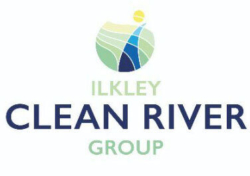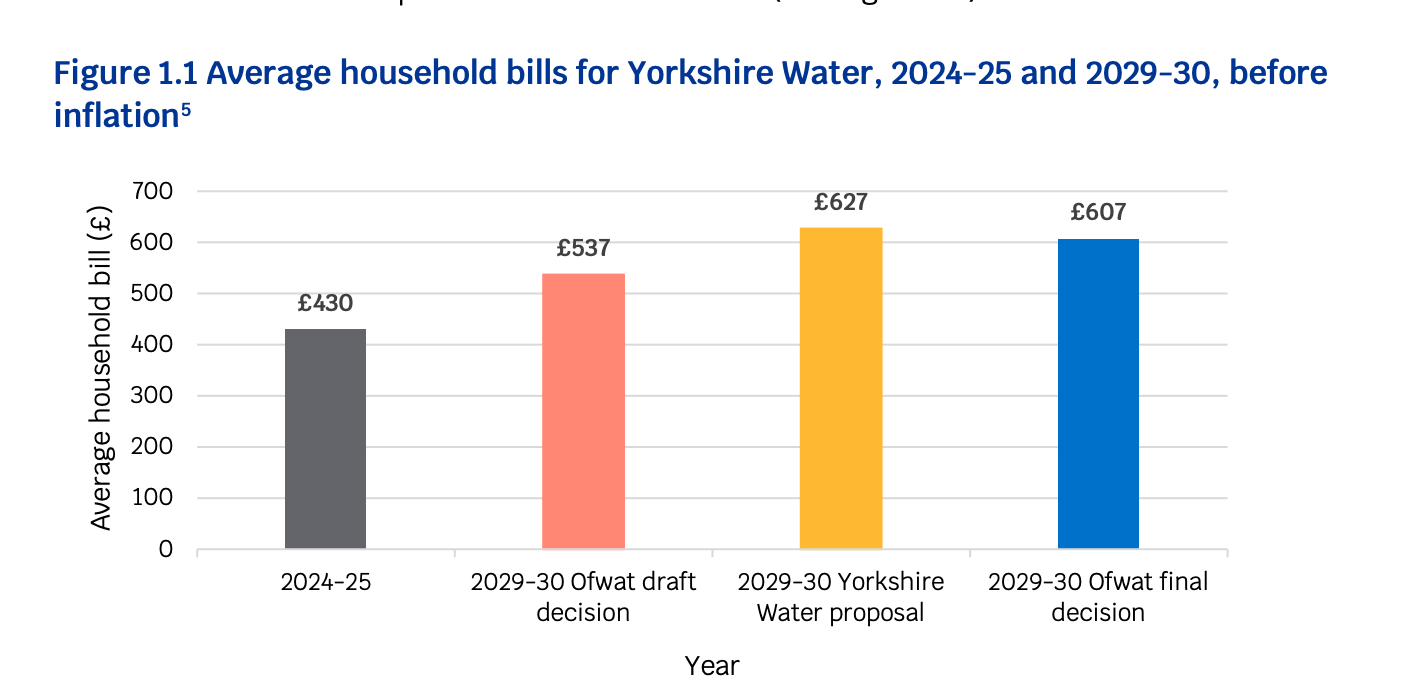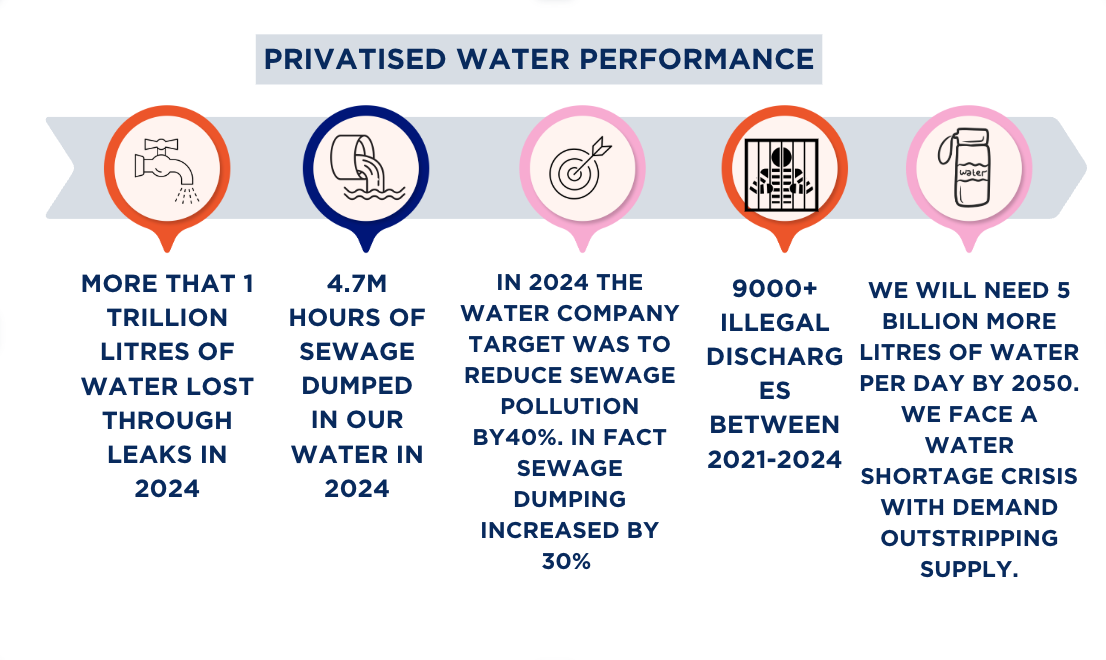PR24 Bill rises are based on putting more money into a water system that is not working. We are about to throw good money after bad, with no change to how the regulators regulate and only limited changes to monitoring. We will still know nothing about water company actual spend, nothing about the volume of pollution, and nothing will have been done about the lack of maintenance of our sewage system leading to the extraordinary decline in our water infrastructure. In addition there is still no strategy for water, which means as a country we have very little water resilience to climate change, water scarcity, and population changes. No-one is doing their job. We are one of the top payers in Europe getting one of the worst water quality. There is no analysis of public value for a monopoly low risk industry. Here is our letter to David Black setting out yet again our outrage and concerns.
David Black
Chief Executive
Ofwat
5th January 2025
Dear David
We hope you had an enjoyable festive break and wish you a Happy New Year.
At the briefing before Christmas, you responded to The Sewage Campaign Network question by saying you didn’t agree with us. It would be helpful to know in what way you disagree, as it wasn’t clear at the briefing.
This is the Ilkley Clean River Group’s position re Yorkshire Water
- Our water bill will increase by 41% by 2030n before inflation paying a company that is not performing and is polluting illegally. This is clearly wrong. .
This is to service additional loans taken from shareholders (deemed investments) to ‘improve’ the infrastructure, and reduce pollution closer to, but not compliant with the law in terms of sewage discharges. [note we are using the interpretation of the law as set out in the Wild Fish judicial review and the OEP report 2024]. We will still have a non-compliant water system.
In addition, we see no change in the behaviour of Ofwat or the Water companies to suggest that continuing with the same approach we have had for years will secure any different outcomes. Currently you are both investigating Yorkshire Water for criminal behaviour (illegal pollution) and you fined Yorkshire Water this year £41m for not meeting its obligations in terms of water quality. What is different in terms of how you are regulating YW that means that these bill rises will deliver what YW promises, given its inability to deliver to date? So far all we are being told is ‘trust us this time its different because there are better people at the top’. This is not our experience. We had a more honest relationship with the previous CEO of YW.
At the same time as being fined for poor performance Yorkshire Water took £84.1m in dividends in 2023 and despite the CEO stating these were paid for from the company not the customer, the company only makes money from the customer so that’s a rather convoluted get out clause.
We cannot see how the system has changed so that any customer money will end up securing the ‘benefits’ proposed, and we do not agree that there should be any bill rises until YW is meeting its requirements and targets as agreed, and all criminal investigations have been concluded. The shareholders are ‘investing’ in a low-risk business (monopoly with guaranteed income from the public protected in terms of inflation) and should therefore take the risk of paying for the service required of the company whilst these investigations take place and until YW is performing as required.
- You state that all the additional costs are for ‘enhancement’ not ‘base’.
In the case of Ilkley, Yorkshire Water reported compliance with all requirements as each PR with Ofwat. The fact that Ilkley was ‘spilling’ for 1/3rd of the days of the year, compliant with a permit set at Ilkley STW capacity not the legal requirements, does not mean it was compliant with its contractual and legal requirements. The closure of Addingham sewage works, the lack of maintenance of sewage pipes and CSOs (you saw the results of that as you walked around the river with us), the increase in housing meant that the infrastructure in Ilkley was not being maintained to meet demand. This lead to the changes at the Riverdale CSO (as a result we think of your intervention) and the new sewer to stop illegal discharges along the riverbank. Neither would have happened if we hadn’t intervened with you and the EA culminating at the garden meeting. So to say that YW was properly reporting its ability to meet its obligations was clearly put in dispute at that time. This means that projects to ‘enhance’ cannot be viewed in the light of benchmarking against the current state of the infrastructure. If the infrastructure had been properly maintained then the bill in PR24 would be less. We want to know the value of the assets. We ask you to review the value of YW’s assets, compare those against the value at the point of privatisation, and the expectation of the value had YW been maintaining the assets as self-reported since privatisation i.e. what it the current value against the expectation of that current value. This is why we think the public has paid.
When we look at capital expenditure across YW since privatisation, it equates to the income from customer bills. When we look at dividends and debt recovery; that equates to the income funding from shareholders. The ‘investment’ was actually money in and then money out. There has been no value to the environment or the customer of the ‘long term’ investment proposition of privatisation. Yorkshire Water is currently servicing £6265m debt before the PR24 approval of ‘investments’ which are in fact debt which we will be servicing as customers. At the point of sale, the water industry was debt free. For that scale of debt, we would expect to see massive investment in our infrastructure, whereas we are persistently taunted with the ‘Victorian’ infrastructure argument all these years later.
- The goals in PR24
We note Ofwat’s approach to storm overflows interpreting 20 ‘spills’ as the goal, with no reference to volume of pollution. We would welcome a response as to how that complies with the OEPs report on the interpretation of the law.
The submitted question from the Sewage Campaign Network was as follows and captures all of the above.
“OFWAT’s announcement on bill rises means that water is now twice as expensive as it was before privatisation, in real terms. In Europe we are one of the highest payers per inhabitant, securing one of the lowest water quality. We dispute that shareholders have invested; they have taken out more money than they have put (calculated at current 2023-24 equivalent) whilst customer bill payments can account for all the water companies’ capital expenditure. Maintaining and treating our sewage is base expenditure and should be paid for by water companies. Why should customers bear the cost of water companies failing to maintain our infrastructure, despite reporting compliance, illegal pollution activity, and reckless financial mismanagement ?This public has already paid for their failures.” On the day we added in words to this affect ‘How is Ofwat changing the way it works? This PR24 determination looks like exactly the same process that has got us to the current position.”
Please note also that much of this has been covered in our previous submission on PR24. We did meet with Tim Griffiths for 30 minutes in August, but there was not time to cover all the issues and we therefore send a subsequent letter enclosed below, to which we await a reply.
Prof Becky Malby
Chair Ilkley Clean River Group



